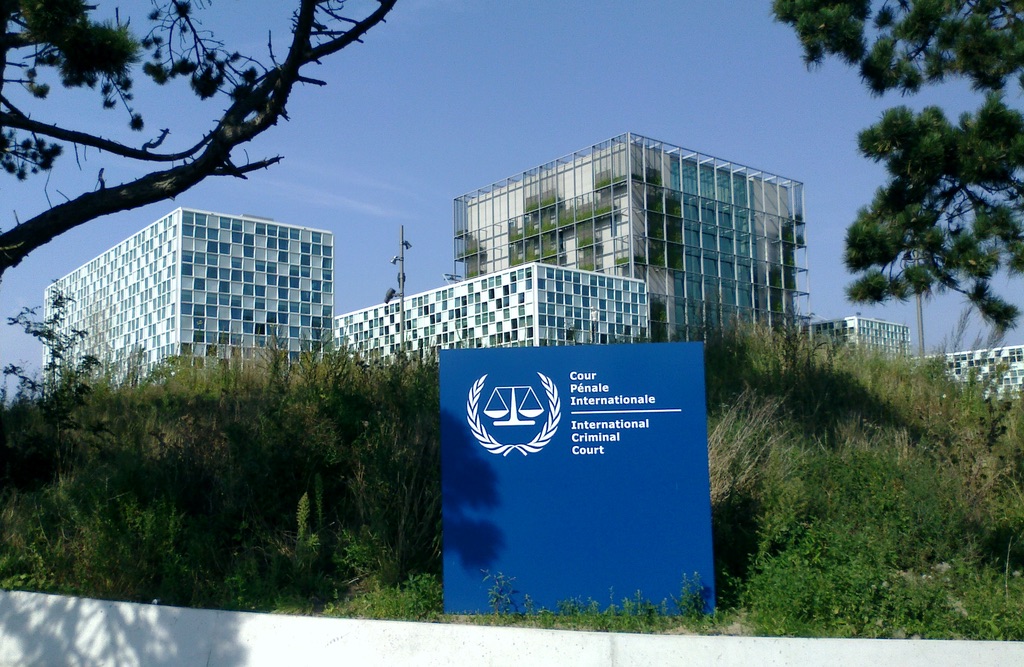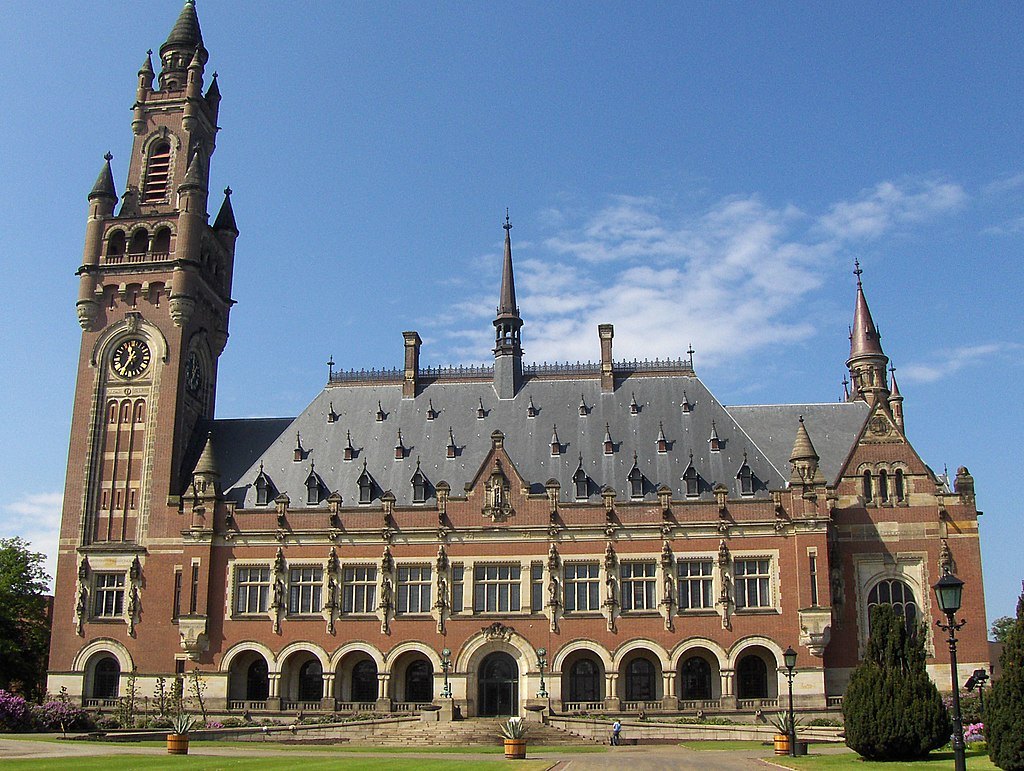Could the U.S. Sanction the International Criminal Court?
Yes, but that doesn’t mean it’s a good idea.

Published by The Lawfare Institute
in Cooperation With

The International Criminal Court’s (ICC’s) March 5 decision to authorize its top prosecutor, Fatou Bensouda, to pursue an investigation into alleged U.S. war crimes in Afghanistan has already triggered a new round of U.S. tensions with the court. Secretary of State Mike Pompeo quickly denounced the ICC’s action and stated that the U.S. “will take all necessary measures to protect our citizens from this renegade, so-called court.” Trump administration officials will now have to decide whether or not to follow through on the public threat that then-Trump administration National Security Adviser John Bolton made in 2018 to sanction ICC officials and staff if they pursued an investigation into the U.S.—and, if so, what legal authorities they could use for such sanctions.
The U.S. has never joined the ICC and has long opposed ICC investigations of Americans, which U.S. officials view as inconsistent with the ICC’s jurisdiction and mandate. But the current U.S. tensions with the ICC date to late 2017, when Bensouda first announced her intention to investigate alleged war crimes in Afghanistan, which is an ICC member, and that the investigation would include alleged U.S. war crimes as well as war crimes perpetrated by the Taliban and Afghan government. U.S. officials have threatened a steadily escalating set of consequences against the ICC if it pursued the investigation against U.S. service members. Indeed, the State Department already revoked Bensouda’s ability to travel to the U.S. in April 2019, several months after she announced her intention to launch a preliminary investigation into U.S. actions in Afghanistan. Now, the U.S. faces the question of whether to sanction the court, an act that the Trump administration has the legal authority to do, but that would likely trigger a backlash by U.S. allies that would far outweigh any perceived benefits from sanctions.
No existing U.S. sanctions program appears to authorize sanctions against the ICC or its staff. U.S. sanctions impacting Afghanistan are generally implemented through sanctions programs that target terrorist groups, such as Executive Order 13224, which authorizes sanctions against individuals and groups that have engaged in, or which pose a significant risk of engaging in, terrorism or that support terrorist groups. None of these provisions would appear to apply to the ICC, even if the U.S. government sincerely assessed that the threat of ICC prosecution would impede or hinder U.S. counterterrorism operations in Afghanistan (or in other countries), since the ICC itself could not be said to be supporting a terrorist group,.
Potentially, if the ICC detained an American, the U.S. might be able to use the existing Global Magnitsky sanctions program to sanction ICC officials or the ICC itself. The Global Magnitsky sanctions program was established to sanction individuals and entities involved in human rights abuses and corruption, and in August 2018 the U.S used the program to sanction two Turkish government officials involved in the detention of American pastor Andrew Brunson. Specifically, the U.S. found that Turkish Justice Minister Abdulhamit Gul and Turkish Interior Minister Suleyman Soylu could be sanctioned under Executive Order 13818(2)(c)(1) “for being the leader of an entity that has engaged in, or whose members have engaged in, serious human rights abuse.”
Admittedly, there would be a degree of irony in the U.S. using a sanctions program that is designed to punish human rights abuses to sanction individuals involved in investigating alleged human rights abuses. But presumably insofar as the U.S. viewed an ICC detention of U.S. service members as unlawful and illegitimate, it could apply the same rationale to the ICC that it applied to Turkey. Although the Treasury Department never released the specific factual basis for its designation of Gul and Soylu, the Treasury Department likely found that Brunson’s detention under the circumstances amounted to a “serious human rights abuse” for the purposes of the executive order. Having made that determination, should the ICC detain an American, the Trump administration might make a similar determination with respect to the ICC. But it is difficult to see how an ICC investigation, by itself, could reach the Magnitsky sanctions program’s threshold.
More plausibly, President Trump would simply invoke the International Emergency Economic Powers Act (IEEPA) to establish a new sanctions regime against the court. The IEEPA, which is the underlying statutory basis for sanctions programs ranging from U.S. sanctions on terrorist groups to many sanctions on Iran and North Korea, authorizes the president to take a range of actions, including sanctions, “to deal with any unusual and extraordinary threat, which has its source in whole or substantial part outside the United States, to the national security, foreign policy, or economy of the United States, if the President declares a national emergency with respect to such threat.”
To invoke the IEEPA and impose sanctions on the ICC, Trump would first have to identify the scope of the “national emergency” that justifies invoking the statute. While an ICC investigation may not fit within a common-sense understanding of a “national emergency,” in law and practice presidents have broad discretion to interpret the phrase. For example, current declared national emergencies used to underpin U.S. sanctions include ones related to the situation in the Western Balkans, to Belarus, and to transnational crime, as well as more obvious cases like Iran and North Korea. To sanction the ICC, Trump could find that the threat of ICC investigations and prosecutions of U.S. military personnel operating in Afghanistan and other theaters of active combat were a national emergency and constituted an unusual and extraordinary threat against U.S. foreign policy and national security because they threatened to constrain legitimate U.S. military operations internationally, undermining U.S. security. After declaring such a national emergency, President Trump could invoke the IEEPA and issue an executive order that would authorize sanctions on individuals and entities involved in ICC investigations, and then proceed to sanction Bensouda and other ICC officials.
Given judicial deference to the executive branch on issues of national security and foreign policy, and the absence of U.S. citizens who would have standing to challenge such a decision by President Trump, practically speaking there would be few U.S. legal checks to constrain this action. To date, for example, U.S. courts have never found that the president lacked the authority to establish a sanctions program. And while Congress could try to overturn the president’s action, doing so would require Congress to enact a resolution overturning the action by a veto-proof majority, which is extremely unlikely.
That doesn’t, however, mean that ICC sanctions would be a good idea.
At a very practical level, sanctions will not stop Bensouda’s investigation. They would freeze any of Bensouda’s assets in the United States and would freeze the assets of other sanctioned ICC officials. They could also make major banks wary of processing payments related to the ICC. But while this could create some operational headaches for the ICC, the ICC prides itself on its independence, and Bensouda would likely respond to U.S. sanctions by doubling down on her investigation. Bensouda and the ICC were clearly aware of the U.S. threat when they decided to move forward, and they are unlikely to back down in the face of further U.S. pressure.
The U.S. might hope that sanctions would deter other countries from cooperating with the ICC. But the opposite would likely prove true: ICC sanctions would shift the debate in Europe and elsewhere away from the serious underlying flaws in the ICC decision to investigate—including that the U.S. is not a party to the ICC and that Afghanistan, which is a signatory, has not requested such an investigation—to the issue of whether the U.S. response is appropriate. Rather than, for example, having the potential for allies to join the U.S. in an action that might stop the ICC investigation, such as trying to convince the U.N. Security Council to use its powers to stop it, sanctions might just get the ICC’s supporters to dig in their heels.
After all, European states generally expressed support for the ICC after Bolton first threatened the court with sanctions in 2018. Implementing U.S. sanctions would trigger an even stronger European show of support, both rhetorically and, potentially, in terms of helping the ICC circumvent any potential practical impacts the sanctions might have on its operations. Indeed, European countries are already engaged in a raging debate about how to respond to perceived U.S. sanctions over-reach in other contexts, illustrated most vividly by the establishment of Instex, the European financial mechanism designed to limit the impacts of U.S. sanctions on Iran. ICC sanctions would simply add fuel to this fire and could even get Europe to expand its efforts to blunt the impact of U.S. sanctions generally.
It is fair for the U.S. to criticize the ICC’s decision, to refuse to cooperate, and to urge U.S. allies who are members of the ICC to press the court to reverse course. But while the president almost certainly has the legal authority to carry out Bolton’s 2018 threat, in practice carrying it out won’t serve the administration’s objective of stopping the investigation.





